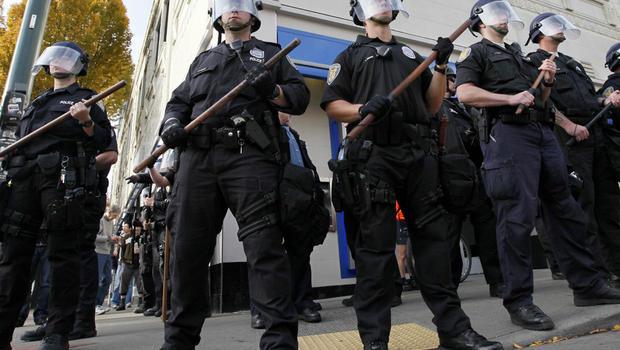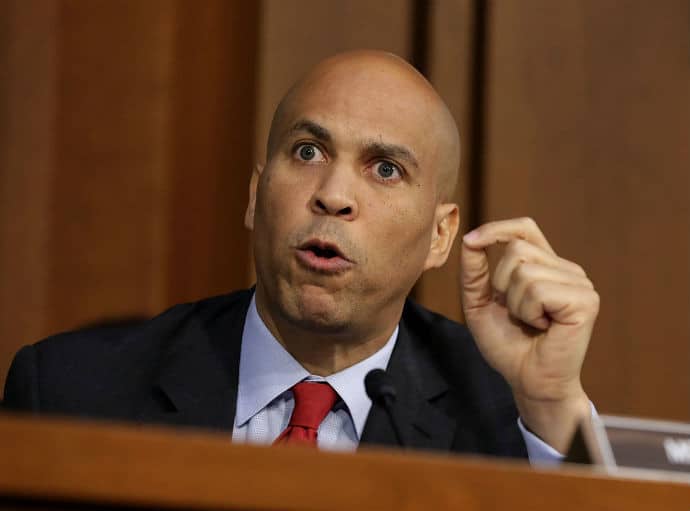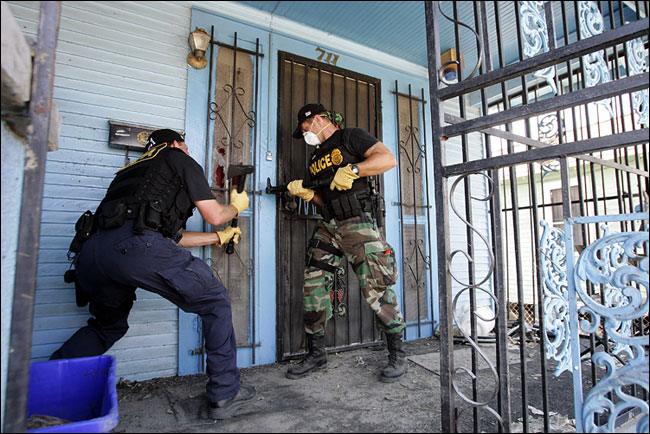 NSPD 51, or the National Security Presidential Directive, is a presidential directive allowing for the continuance of “National Essential Functions” from the local to federal level during an emergency scenario – and it could dramatically impact Americans’ freedoms.
NSPD 51, or the National Security Presidential Directive, is a presidential directive allowing for the continuance of “National Essential Functions” from the local to federal level during an emergency scenario – and it could dramatically impact Americans’ freedoms.
First issued in May of 2007 by President George W. Bush, it was recently updated by the Obama administration, although the directives from both presidents deserve attention.
NSPD 51 can be enacted during a situation deemed to possess “extraordinary levels of mass casualties, damage, or disruption” that severely impacts the country’s population, economy, government functions or the environment. Critics say that ensuring the country continues to function during either a natural or man-made disaster is a good idea – unless it usurps Constitutional freedoms of citizens.
Enacting martial law falls well within the powers of NSPD 51, as well as within the 1947 National Security Act.
The NSPD directive lays out the groundwork for the “continuity of government,” which it describes as a “coordinated effort within the Federal Government’s executive branch to ensure that the “National Essential Functions” continue to be performed during a “catastrophic emergency.” The directive elevates the executive branch and lessens the powers of the other two branches. It defines “enduring constitutional government” during a crisis as a “cooperative effort among the executive, legislative, and judicial branches of the Federal Government, coordinated by the President, as a matter of comity.”
Bombshell New Book Reveals… How To Survive The Coming Martial Law In America
As Slate.com’s Ron Rosenbaum wrote:
In other words, in the weasel-speak of NSPD-51, it implies that one or more branches of the government will have to cede power to another. And since everything is to be “coordinated by the president,” I’m guessing that the members of the Supreme Court left alive and some congressional leaders left alive (How chosen? What party balance?) will in effect have to sit around a big conference table and do a lot of “ceding” to the executive.
The Obama administration updated USPD 51 in November to ensure that the NSA can still operate during a national crisis. It says that during such a time “the President, the Vice President, statutory successors, and other national leaders, as appropriate, are provided with timely, insightful, objective, and relevant national intelligence wherever they are located and in all conditions.”
Another document, the National Security Act, gives the president significant powers during a time of crisis. As the government-funded Congressional Research Service said in a report to Congress:
Under the powers delegated by such statutes, the President may seize property, organize and control the means of production, seize commodities, assign military forces abroad, institute martial law, seize and control all transportation and communication, regulate the operation of private enterprise, restrict travel, and, in a variety of ways, control the lives of United States citizens.
The Bush NSPD order – not changed by Obama — discussed the need to provide “rapid and effective response” to “domestic consequences” of a crisis incident or attack. As we all saw via our television screens during the horrific Boston Marathon bombing, the desire to protect citizens meant the issuance of an order to remain inside their homes and be subject to warrantless searches.
The national security directive further said the executive branch will ensure that:
— “The continuation of the performance of [government essential functions] during any emergency must be for a period up to 30 days or until normal operations can be resumed, and the capability to be fully operational at alternate sites as soon as possible after the occurrence of an emergency, but not later than 12 hours after [continuity of operations] activation.
— “Succession orders and pre-planned devolution of authorities that ensure the emergency delegation of authority must be planned and documented in advance in accordance with applicable law;
— “Vital resources, facilities, and records must be safeguarded, and official access to them must be provided;
— “Provision must be made for the acquisition of the resources necessary for continuity operations on an emergency basis;
— “Provision must be made for the availability and redundancy of critical communications capabilities at alternate sites in order to support connectivity between and among key government leadership, internal elements, other executive departments and agencies, critical partners, and the public;
— “Provision must be made for reconstitution capabilities that allow for recovery from a catastrophic emergency and resumption of normal operations; and
— “Provision must be made for the identification, training, and preparedness of personnel capable of relocating to alternate facilities to support the continuation of the performance of [government essential functions].”
How do you feel about NSPD 51 and the potential martial law powers of the federal government?
Sign up for Off The Grid News’ weekly email and stay informed about the issues important to you











